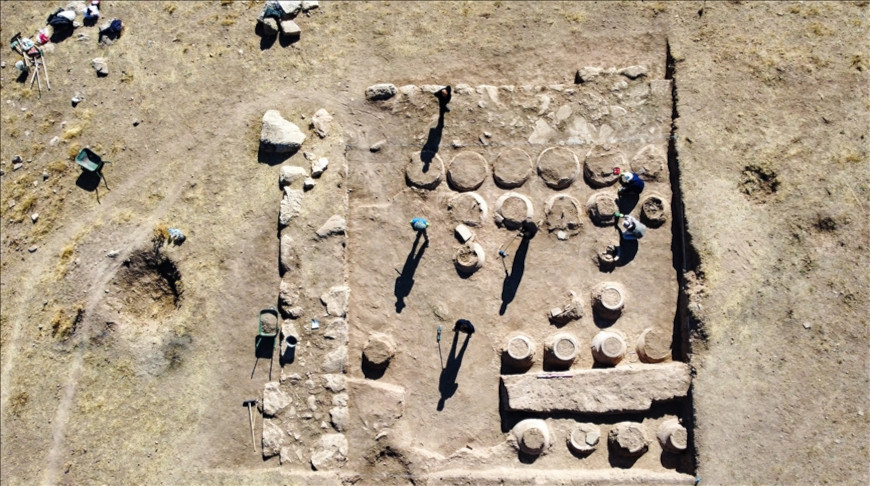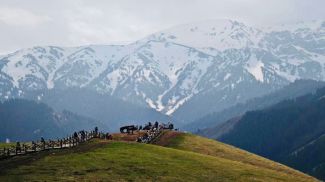
VAN, 12 November (BelTA - Anadolu) - Archaeologists in Van uncovered 42
large storage jars, known as pithoi, marked with cuneiform inscriptions
that were used during the Urartian period for storing oil, grain and
beverages.
The discovery was made at the castle ruins on Mount Erek in Kevenli Village -- a site of major Urartian significance.
"We have uncovered an important site. Our research and the data we have obtained suggest that this was a significant Urartian project. As a result of our 10-day excavation this year, we have discovered 42 pithoi,” said Rifat Kuvanc, who leads the excavation. “This is the first time we have found such a large-scale storage facility at a location that overlooks both Van and the plain."
The inscriptions on the jars provide details on measurements.
"The Urartians were an agricultural society, and storing agricultural products was essential. These markings provide information about the stored products. It seems to have stored sesame oil and wine," added Kuvanc.
Further excavations are planned next year to uncover additional architectural features of the castle.
The discovery was made at the castle ruins on Mount Erek in Kevenli Village -- a site of major Urartian significance.
"We have uncovered an important site. Our research and the data we have obtained suggest that this was a significant Urartian project. As a result of our 10-day excavation this year, we have discovered 42 pithoi,” said Rifat Kuvanc, who leads the excavation. “This is the first time we have found such a large-scale storage facility at a location that overlooks both Van and the plain."
The inscriptions on the jars provide details on measurements.
"The Urartians were an agricultural society, and storing agricultural products was essential. These markings provide information about the stored products. It seems to have stored sesame oil and wine," added Kuvanc.
Further excavations are planned next year to uncover additional architectural features of the castle.













